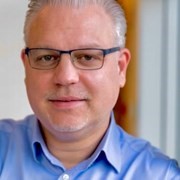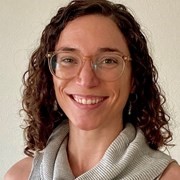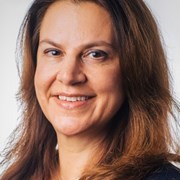January 25-29, 2025
San Diego Convention Center
San Diego, CA, USA


January 25-29, 2025
San Diego Convention Center
San Diego, CA, USA
Targeted Protein Degradation (TPD) is an innovative approach in drug discovery that harnesses the cell's natural protein disposal system to eliminate disease-causing proteins. This short course provides a comprehensive overview of TPD, focusing on its mechanisms, applications, and potential in addressing targets that cannot be inhibited with traditional approaches (so-called "undruggable").
Participants will learn about the ubiquitin-proteasome system and key components of TPD, including proteolysis-targeting chimeras (PROTACs), molecular glues, and other modalities. The course will cover the design and optimization of protein degraders, exploring E3 ligase selection, target protein ligands, linker chemistry, and methods for assessing degrader compound properties. Advantages of TPD over conventional small molecule inhibitors will be discussed, along with case studies in various therapeutic areas. Practical aspects of TPD drug discovery, including screening methods and in vitro/in vivo evaluation, will also be addressed.
Additionally, the course will touch upon emerging TPD strategies and explore the current state of TPD in clinical development. Participants will gain a solid understanding of TPD's potential to revolutionize drug discovery and its implications for treating a wide range of diseases. This course is designed for researchers, drug discovery scientists, and graduate students interested in expanding their knowledge of targeted protein degradation and its applications in modern drug development.
The course will cover:

Markus Queisser, Ph.D.
GlaxoSmithKline
Markus Queisser, Ph.D., has a robust background in protein homeostasis and protein degradation, which began during his Master’s in Biochemistry at Free University Berlin, where he focused on proteasome function. His expertise expanded into respiratory diseases, inflammation and oncology during his Ph.D. in Biomedical Sciences at the international graduate program at UGLC in Germany and Albert-Einstein College of Medicine.
Following his Ph.D., Queisser pursued postdoctoral training at Northwestern University where he collaborated with Nobel Laureate Aaron Ciechanover to characterize the regulation of ubiquitin ligase HOIL, identifying it as a key mechanism in tumor adaptation to hypoxia. Before joining GSK, he further specialized in ubiquitin-ligase recruitment at the Ludwig Institute for Cancer Research. Currently, Queisser holds the position of Scientific Director in the Modalities Platform Technologies Group at GSK. He leads efforts on bifunctional degraders and molecular glues and manages multiple collaborations with biotech companies and academic institutions.

Kristin Riching, Ph.D.
Promega Corporation
Kristin Riching, Ph.D. is a Senior Research Scientist and Group Leader at Promega, bringing extensive experience in development of innovative products and technologies across diverse scientific fields. Her primary focus is the creation of assays to monitor cellular kinetics and the mechanism of action of targeted protein degraders. Beyond TPD, she oversees the technical development of in vitro binding assays for therapeutic antibody characterization, in addition to applying her expertise in bioluminescence and fluorescence microscopy in the development of a novel bioluminescence imager. Riching joined Promega in 2014 and holds a Ph.D. in Biomedical Engineering from the University of Wisconsin-Madison.

Anastasia Velentza, Ph.D.
Plexium
Anastasia Velentza, Ph.D. is the Head of Discovery Technology at Plexium, a TPD company. She has 23 years of drug discovery experience, with her expertise falling in screening and discovery biology across multiple therapeutic areas, modalities and targets. Before Plexium, she held positions of increasing responsibility at Novartis, Dart Neuroscience and Ferring Pharmaceuticals. Velentza was an NIH Research Award scholar in a drug discovery training program at Northwestern University in Chicago, IL, earned her Bachelor of Science in Chemistry at the University of Patras in Greece, and a Ph.D. from the same institution in Bioorganic Chemistry, funded by a competitive scholarship and EU programs.
Vladislav Zarayskiy, Ph.D.
Monte Rosa Therapeutics
Vladislav Zarayskiy, Ph.D., is the Senior Director of Automation and Screening at Monte Rosa Therapeutics. He is cellular biologist who is passionate about numbers 384 and 1536 and who likes to tell robots what to do. Zarayskiy previously held positions at Synta Pharmaceuticals, Eisai, Forma Therapeutics and Jnana Therapeutics developing multiple assays and running high throughput screens and compound management.